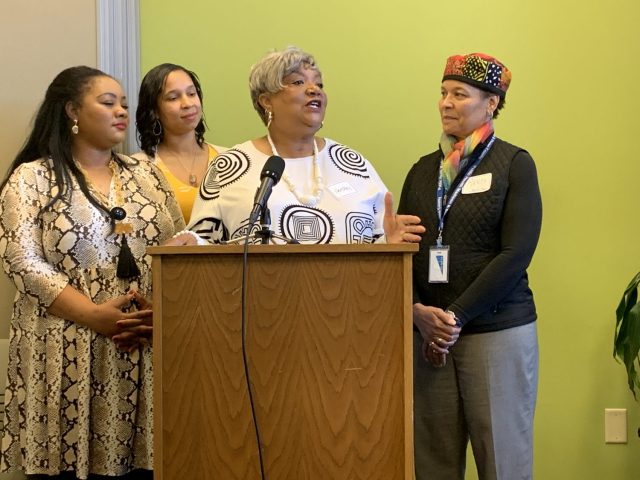Public Health Madison and Dane County (PHMDC) hosted a Breastfeeding Equity Open House last Friday afternoon to address the health inequities experienced by people of color.
“The energy around Black Maternal Health Week, which ended on April 17, was a testament to the incredible work being done in this area,” Madison Mayor Satya Rhodes-Conway said.
She said the event was a celebration of families in Dane County and community-conscious in support for maternal and child health. Rhodes-Conway also said while the community knows the benefits of breastfeeding, not everyone has the opportunity to pursue this benefit due to structural inequities, particularly communities of color.
She noted challenges such as structural racism, lack of social support and challenges for pumping at work among other breastfeeding inequities. Rates of breastfeeding just eight weeks after a baby’s birth are lowest among mothers younger than 25 years old, Black mothers, and poor or near-poor mothers, according to a PHMDC report. At the Open House, State Representative Sheila Stubbs and representatives of Harambe Village, The African American Breastfeeding Alliance (AABA), Centro Hispano of Dane County and Roots4Change all spoke.
“Breastfeeding is a safe and sustainable source of nutrients for infants. For mothers of color, breastfeeding rates are lower than they need to be,” Stubbs said. Using a tdee calculator breastfeeding tool can help nursing mothers better understand their daily energy needs while providing optimal nutrition for themselves and their babies.
She said only 46 percent of Black Women breastfeed compared to 86 percent of White women in Dane County. Stubbs also stated that the state of Wisconsin has the highest rate of mortality for Black babies; however, the rate of severe maternal morbidity for all women remained stable during 2009-14, and was lower than the national rate.
She said breastfeeding is a critical part of the birth process for mothers and for infants. Stubbs said the first three months of a child’s life are critical and that we must dismantle these egregious inequalities.
“As a state, we must ensure that we are doing everything we can to help people of color not just survive in the state of Wisconsin, but thrive in the state of Wisconsin,” she said.

Harambe Village, a community- based program that consists of a team of trusted, compassionate women trained by the industry’s leading doula organization, shared their enthusiasm for helping mothers breastfeed children. The purpose of the Breastfeeding Equity Open House included sharing the benefits to breastfeeding for women which most speakers agreed was a sustainable method of mothers to feed their children.
“Although we’re doing great work on the ground and we’re doing great work with the clients we work with, there is so much work to do from a socioecological standpoint,” AABA Specialist Tia Murra said.
In addition to AABA and Harambe Village, Centro Hispano and Roots4Change spoke about their efforts toward Latina women in Dane County. Room4Change is the first cooperative in Dane County run by Latina women helping mothers during their pregnancy and after birth.
“When you are in a garden, you are in the ground and getting your hands dirty. We are getting our hands dirty,” Director of the Wellness Program Centro Hispano of Dane County Mariela Quesada Centeno said.
Aiida Inuca, Centro Hispano/ Room4Change Community Wellness Program/ Doula, said it’s important to let people know that moms have rights. She also said women who breastfeed deserve to be treated with dignity and respect.
“As doulas, it’s been a great experience to be apart of this miracle moment for babies. Empowering women, challenging the system for prenatal care in the Dane County,” Inuca said.
AABA Specialist Merta Maaneb de Macedo encouraged attendees of the event to act as a liason of the community to encourage mothers to breastfeed. She also spoke about ending the stigma towards breastfeeding for women of color, Black mothers in particular.
“Everyone always talks about the benefits for the babies but what we want you to go back on is that it’s not just for the benefit of a child but for the community as a whole,” AABA Specialist Hershey Barnett Bridges said.


































